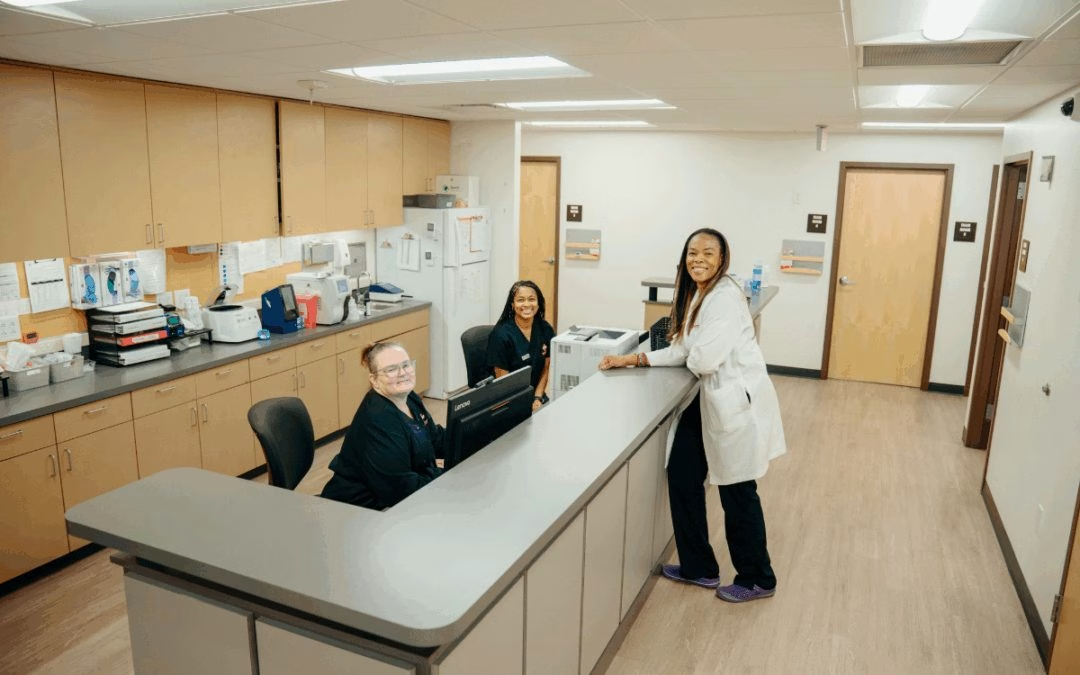
Can I use tanning beds for psoriasis treatment?
If you are seeking adventure—anything from skydiving, to ziplining, to fishing—Sevierville is sure to please! The warmer months of summer bring with them plenty of outdoor opportunities and loads of sunshine. If you suffer from psoriasis, you have likely discovered that the sunnier months of the year provide a measure of relief from your symptoms. Perhaps you’ve even taken matters into your own hands and begun to use a tanning bed to get help in the winter months. If you have, or are considering doing so, you may want to reconsider.
Risk of Skin Damage
Sunlight, a form of radiation, is primarily composed of light on the ‘A’ spectrum (UVA). Brief exposure to UVA light can help treat psoriasis but it is also the spectrum most associated with skin cancers. Light on the ’B’ spectrum (UVB) accounts for 5% of natural sunlight. UVA light penetrates the skin more deeply than UVB rays. Tanning beds emit the same ratio of UVA and UVB rays as the sun making them use them of no significant increased value when compared to exposure to natural sunlight.
Psoriasis is a chronic autoimmune condition characterized by periods of flare-ups and remission. The inflammation and heightened sensitivity that comes with psoriasis make individuals more susceptible to damage from unregulated UV exposure. Unregulated UV radiation from tanning beds can exacerbate symptoms rather than alleviate them. Tanning beds increase the risk of harm through increased exposure to UV light to a greater area of the body, and with the use of tanning lotions, the body’s natural defenses against UV rays are diminished while the risk for sunburn increases.
Associated Risks
- Indoor tanning can increase your risk of developing the two most common types of skin cancer, squamous cell carcinoma by 58% and basal cell carcinoma by 24%.
- Using tanning beds before age 20 can increase your chances of developing melanoma by 47% with the risk increasing after each additional use according to the American Academy of Dermatologists.
- Tanning, inside or outside, ages your skin more quickly as wrinkles, age spots, stretch marks become more visible, and loss of skin firmness can appear prematurely.
- Eye damage including cataracts, ocular melanoma, and photokeratitis (snow blindness).
- Immune suppression
- Women under 30 years old who tan indoors are six times more likely to develop melanoma.
- Tanning can cause skin to become leathery- an issue those who do not tan do not have.
- Tanning bed injuries send many people per year to the emergency room with burns, loss of consciousness, and eye injuries.
- Psoriasis can flare worse after a tanning burn.
- Becoming addicted to tanning
The World Health Organization International Agency for Research on Cancer has placed tanning beds in the same category of cancer-causing agents as cigarettes and plutonium and the U.S. Federal Drug Administration (FDA) requires warning labels on all indoor tanning equipment due to the bulbs’ moderate risk of causing skin cancer.
Limited Effectiveness
Psoriasis occurs when the body’s autoimmune system malfunctions. Inflammation sets in and patches of skin become red and thickened. The raised skin develops scales that are white or silvery in appearance. Normal skin is replenished every 28 days on average, but in psoriasis, the skin cells are replaced about every four days. This high rate of skin cell turnover is what causes scaling. UVB light therapy, administered under physician supervision, is a medically accepted treatment option that has proven effective against psoriasis. The phototherapy light units used in a medical setting differ from the sun and tanning beds. Medical units typically use light on the UVB spectrum and for just seconds at a time. The light quality and duration are overseen by medical professionals and narrowly target only the skin that needs it while the surrounding unaffected skin remains protected. With phototherapy, the goal is to use noticeably short bursts of light to slow the growth of affected skin cells.
Tanning beds provide far less control of UV output compared to medical phototherapy units used in clinical settings and they do not provide the specific wavelengths or intensity required for most therapeutic benefits. As a result, tanning beds may not deliver the optimal UV dosage needed to effectively manage psoriasis symptoms.
Safer Alternatives
Phototherapy as a treatment for psoriasis can take several forms:
Artificial UVA (PUVA)
This treatment, also known as photochemotherapy, is used in more severe cases. This treatment relies on the use of psoralens which are light-sensitizing agents that can be topical, mixed in bath water, or given orally. Patients must carefully monitor sunlight exposure and limit it according to their doctors’ orders.
Artificial UVB Light
Phototherapy
Doctors often combine light therapy with topical treatments in cases of mild to moderate psoriasis. It is administered through small hand-held light units or full-body units that emit only UVB light.
Narrow Band Therapy
This may work better than phototherapy and takes fewer visits, though it may cause more severe and longer-lasting burns.
Excimer Laser
Used for mild to moderate localized psoriasis plaques and helps control scaling and inflammation. The high-intensity beam is highly effective for the treatment of the scalp.
Without proper medical guidance and supervision, the use of tanning beds can inadvertently worsen the condition and undermine overall skin health. Exposing psoriatic skin to sunburns and increased UV light can trigger inflammation and psoriasis flare-ups leading to more discomfort and potentially worsening the condition over time. By avoiding tanning beds and seeking guidance from healthcare professionals, individuals with psoriasis can explore safer and more effective treatment options tailored to their specific needs and condition severity.
While we don’t treat psoriasis, we can evaluate and treat minor dermatological issues that may arise as spring begins. Visit AFC Urgent Care Sevierville 7 days a week with no appointment necessary.


